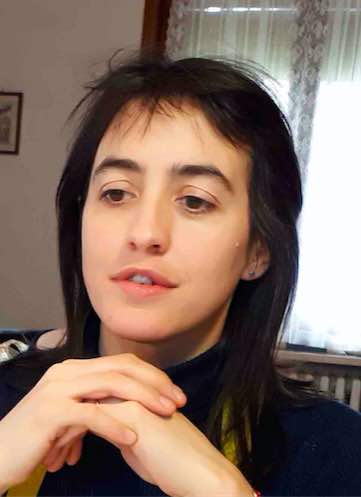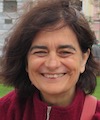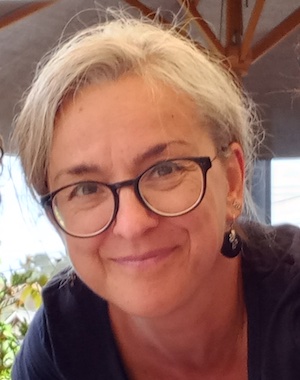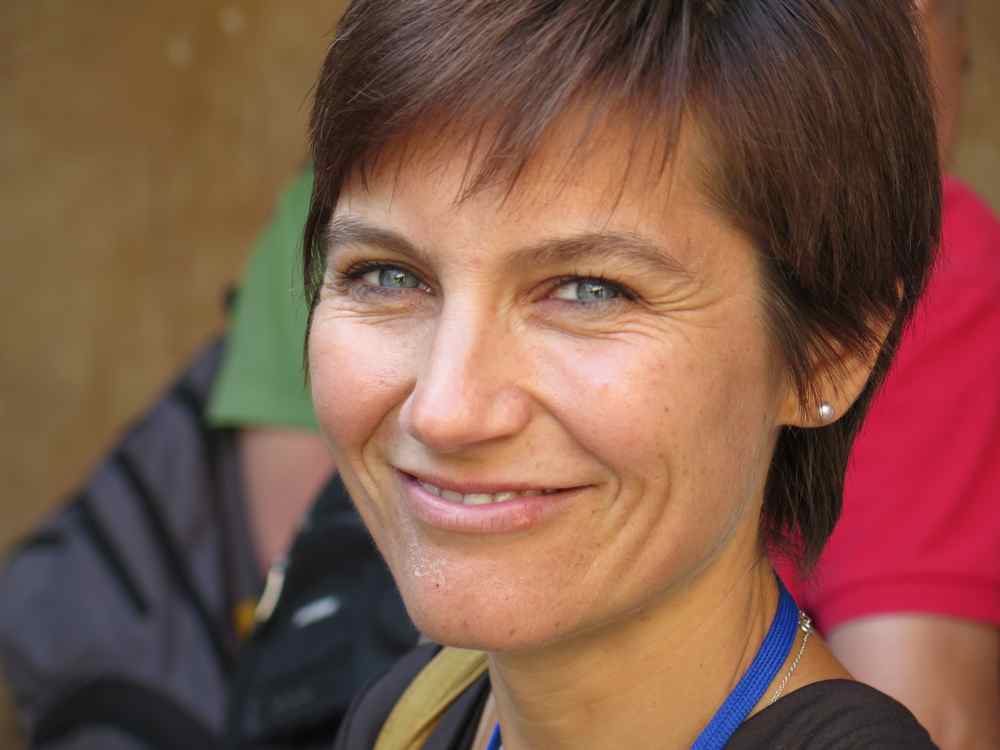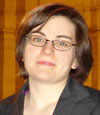Studiare
In questa sezione è possibile reperire le informazioni riguardanti l'organizzazione pratica del corso, lo svolgimento delle attività didattiche, le opportunità formative e i contatti utili durante tutto il percorso di studi, fino al conseguimento del titolo finale.
Calendario accademico
Il calendario accademico riporta le scadenze, gli adempimenti e i periodi rilevanti per la componente studentesca, personale docente e personale dell'Università. Sono inoltre indicate le festività e le chiusure ufficiali dell'Ateneo.
L’anno accademico inizia il 1° ottobre e termina il 30 settembre dell'anno successivo.
Calendario didattico
Il calendario didattico indica i periodi di svolgimento delle attività formative, di sessioni d'esami, di laurea e di chiusura per le festività.
| Periodo | Dal | Al |
|---|---|---|
| I sem. | 2-ott-2017 | 31-gen-2018 |
| I - II semestre | 2-ott-2017 | 15-giu-2018 |
| II sem. | 1-mar-2018 | 15-giu-2018 |
| Sessione | Dal | Al |
|---|---|---|
| Sessione invernale d'esami | 1-feb-2018 | 28-feb-2018 |
| Sessione estiva d'esame | 18-giu-2018 | 31-lug-2018 |
| Sessione autunnale d'esame | 3-set-2018 | 28-set-2018 |
| Sessione | Dal | Al |
|---|---|---|
| Sessione di laurea estiva | 23-lug-2018 | 23-lug-2018 |
| Sessione di laurea autunnale | 17-ott-2018 | 17-ott-2018 |
| Sessione autunnale di laurea | 23-nov-2018 | 23-nov-2018 |
| Sessione di laurea invernale | 22-mar-2019 | 22-mar-2019 |
| Periodo | Dal | Al |
|---|---|---|
| Vacanze di Natale | 22-dic-2017 | 7-gen-2018 |
| Vacanze di Pasqua | 30-mar-2018 | 3-apr-2018 |
| Festa del Santo Patrono - S. Zeno | 21-mag-2018 | 21-mag-2018 |
| VACANZE ESTIVE | 6-ago-2018 | 19-ago-2018 |
Calendario esami
Gli appelli d'esame sono gestiti dalla Unità Operativa Segreteria Corsi di Studio Scienze e Ingegneria.
Per consultazione e iscrizione agli appelli d'esame visita il sistema ESSE3.
Per problemi inerenti allo smarrimento della password di accesso ai servizi on-line si prega di rivolgersi al supporto informatico della Scuola o al servizio recupero credenziali
Per dubbi o domande leggi le risposte alle domande più frequenti F.A.Q. Iscrizione Esami
Docenti
 alberto.benvegnu@univr.it
alberto.benvegnu@univr.it
 maurizio.boscaini@univr.it
maurizio.boscaini@univr.it
 federico.busato@univr.it
federico.busato@univr.it
 tamara.fioroni@univr.it
tamara.fioroni@univr.it

Magazzini Laura
 laura.magazzini@univr.it
laura.magazzini@univr.it
 045 8028525
045 8028525
 gino.mariotto@univr.it
gino.mariotto@univr.it

Mazzuoccolo Giuseppe
 giuseppe.mazzuoccolo@univr.it
giuseppe.mazzuoccolo@univr.it
 +39 0458027838
+39 0458027838
 simone.zuccher@univr.it
simone.zuccher@univr.it
Piano Didattico
Il piano didattico è l'elenco degli insegnamenti e delle altre attività formative che devono essere sostenute nel corso della propria carriera universitaria.
Selezionare il piano didattico in base all'anno accademico di iscrizione.
1° Anno
| Insegnamenti | Crediti | TAF | SSD |
|---|
2° Anno Attivato nell'A.A. 2018/2019
| Insegnamenti | Crediti | TAF | SSD |
|---|
3° Anno Attivato nell'A.A. 2019/2020
| Insegnamenti | Crediti | TAF | SSD |
|---|
| Insegnamenti | Crediti | TAF | SSD |
|---|
| Insegnamenti | Crediti | TAF | SSD |
|---|
| Insegnamenti | Crediti | TAF | SSD |
|---|
| Insegnamenti | Crediti | TAF | SSD |
|---|
Legenda | Tipo Attività Formativa (TAF)
TAF (Tipologia Attività Formativa) Tutti gli insegnamenti e le attività sono classificate in diversi tipi di attività formativa, indicati da una lettera.
Metodi numerici per le equazioni differenziali (2019/2020)
Codice insegnamento
4S00704
Docente
Coordinatore
Crediti
6
Lingua di erogazione
Italiano
Settore Scientifico Disciplinare (SSD)
MAT/08 - ANALISI NUMERICA
Periodo
I semestre dal 1-ott-2019 al 31-gen-2020.
Obiettivi formativi
L'insegnamento si propone di presentare, da un punto di vista analitico e computazionale, i principali metodi numerici per la soluzione di equazioni differenziali ordinarie e di equazioni differenziali alle derivate parziali classiche. Verranno brevemente descritti anche gli integratori esponenziali, metodi d'avanguardia nel campo della Matematica Applicata. L'insegnamento è corredato da una importante parte di laboratorio in cui si implementano e si testano i metodi studiati. Il linguaggio di programmazione usato sarà MATLAB che potrà essere usato attraverso il software specifico Matlab di Mathworks oppure il software open source GNU Octave. Al termine dell'insegnamento lo studente dovrà dimostrare di aver raggiunto adeguate competenze computazionali ed informatiche nell'ambito dei metodi numerici per le equazioni differenziali, da usarsi in aiuto ai processi matematici e per acquisire ulteriori informazioni.
Programma
Nell'insegnamento verranno trattati i seguenti argomenti:
* Problemi ai limiti: metodi alle differenze finite e agli elementi finiti, cenni ai metodi spettrali (collocazione e Galerkin).
* Equazioni differenziali ordinarie: metodi numerici per problemi a valori iniziali, metodi ad un passo (theta-metodo, Runge-Kutta a passo variabile, cenni a integratori esponenziali) e multistep, stabilità, assoluta stabilità.
* Equazioni differenziali alle derivate parziali: generalità e studio di alcune tra le equazioni alle derivate parziali classiche (Laplace, calore e trasporto), metodo delle linee.
Si prevede l'ausilio di attività di tutorato per la correzione di esercizi assegnati durante lo svolgimento delle lezioni.
| Autore | Titolo | Casa editrice | Anno | ISBN | Note |
|---|---|---|---|---|---|
| Arieh Iserles | A First Course in the Numerical Analysis of Differential Equations (Edizione 2) | Cambridge University Press | 2009 | 9780521734905 |
Modalità d'esame
L'esame intende accertare che lo studente sia in grado di produrre e riconoscere dimostrazioni rigorose nell'ambito dei metodi numerici per le equazioni differenziali, sappia usare strumenti informatici in aiuto ai processi matematici e per acquisire ulteriori informazioni. Inoltre, lo studente dovrà dimostrare di conoscere un linguaggio di programmazione e di un software specifico. La prima parte della prova si svolge in laboratorio. Lo studente dovrà implementare individualmente, entro due ore, i metodi numerici richiesti per la risoluzione degli esercizi assegnati. Il programma di questa parte comprende le differenze finite a passo costante per i problemi ai limiti, i metodi a passo costante per i problemi ai valori iniziali, il metodo delle linee per le equazioni alle derivate parziali. La prova si intende superata con un punteggio pari o superiore a 15/30. Il voto dello scritto rimane valido sino e non oltre il successivo semestre di lezione. Per essere ammessi alla seconda parte della prova, orale, è necessario aver superato la parte scritta. La seconda parte della prova è orale. Il programma di questa parte comprende tutti gli argomenti trattati a lezione, con eccezione dei dettagli della trasformata di Fourier discreta. La prova si intende superata con un punteggio pari o superiore a 15/30.
Il voto finale è dato dalla media aritmetica dei voti conseguiti nelle due parti.
Tipologia di Attività formativa D e F
Insegnamenti non ancora inseriti
Prospettive
Avvisi degli insegnamenti e del corso di studio
Per la comunità studentesca
Se sei già iscritta/o a un corso di studio, puoi consultare tutti gli avvisi relativi al tuo corso di studi nella tua area riservata MyUnivr.
In questo portale potrai visualizzare informazioni, risorse e servizi utili che riguardano la tua carriera universitaria (libretto online, gestione della carriera Esse3, corsi e-learning, email istituzionale, modulistica di segreteria, procedure amministrative, ecc.).
Entra in MyUnivr con le tue credenziali GIA: solo così potrai ricevere notifica di tutti gli avvisi dei tuoi docenti e della tua segreteria via mail e a breve anche tramite l'app Univr.
Prova Finale
1. La prova finale prevede la preparazione sotto la guida di un relatore di un elaborato scritto (tesi), che può consistere nella trattazione di un argomento teorico, o nella risoluzione di un problema specifico, o nella descrizione di un progetto di lavoro, o di un'esperienza fatta in un'azienda, in un laboratorio, in una scuola ecc. La tesi, preferibilmente redatta in TeX/LaTeX/AMSTeX e usando il pacchetto LaTeX Frontespizio, può essere inviata preliminarmente in formato elettronico ai membri della Commissione Valutazione Tesi e dovrà essere presentata, in duplice copia, al momento della discussione. La tesi potrà essere redatta anche in lingua inglese.
2. La discussione della tesi, che dovrà durare indicativamente tra i venti e i trenta minuti, avverrà davanti ad una Commissione Valutazione Tesi nominata dal Presidente del collegio Didattico di Matematica. ll Presidente della commissione è il professore di ruolo di più alto grado accademico. La Commissione Valutazione Tesi è composta da almeno tre Docenti tra cui possibilmente il Relatore. Ogni Commissione Valutazione Tesi potrà valutare più studenti in funzione del contenuto del lavoro da essi presentato. La discussione della tesi viene effettuata durante i trenta giorni precedenti la data stabilita per la sessione di Laurea, ne viene data adeguata comunicazione ed è aperta al pubblico.
3. La Commissione Valutazione Tesi attribuisce ad ogni studente un punteggio della prova finale che va da zero a cinque. La valutazione della prova finale si articola in maniera tale da tenere conto delle conoscenze acquisite dallo studente durante il lavoro di tesi, del loro grado di comprensione, dell'autonomia di giudizio, delle capacità dimostrate dallo studente di applicare dette conoscenze e di comunicare efficacemente e compiutamente l'insieme degli esiti del lavoro ed i principali risultati ottenuti (si vedano la Tabella 1 per tesi di laurea triennale e la Tabella 2 per tesi di laurea magistrale, in calce al presente regolamento). Il Presidente della Commissione Valutazione Tesi invia una relazione, firmata da tutti i componenti della Commissione, al Presidente della Commissione di Esame Finale indicando per ogni studente il punteggio attribuito per l'esame finale ed un eventuale breve giudizio.
4. La Commissione di Esame Finale, unica per tutti gli studenti di quella sessione di Laurea, viene nominata dal Presidente del Collegio Didattico di Matematica. Il Presidente della commissione è il professore di ruolo di più alto grado accademico. La Commissione di Esame Finale deve essere composta da un Presidente e almeno da altri quattro Commissari scelti tra i docenti dell'Ateneo.
5. La Commissione di Esame Finale determina per ogni studente il punteggio finale sommando la media, pesata rispetto ai relativi CFU, espressa in centodecimi, dei voti degli esami del piano di studi, escluse le attività in sovrannumero, con il punteggio della prova finale. Aggiunge inoltre il punteggio attribuito alla carriera dello studente, da zero a due (si veda la Tabella 3, in calce al presente regolamento). Il voto finale, espresso in centodecimi, si ottiene arrotondando all'intero più vicino (all'intero superiore, in caso di equidistanza) il punteggio ottenuto, senza eccedere 110 centodecimi e assegnando la lode solo con l'unanimità della Commissione di Esame Finale al candidato che abbia raggiunto i 110 centodecimi dopo l'arrotondamento.
6. La Commissione di Esame Finale procede alla proclamazione dei nuovi Laureati in Matematica Applicata o Laureati magistrali in Mathematics con una cerimonia pubblica ed ufficiale.
Documenti
| Titolo | Info File |
|---|---|
|
|
pdf, it, 31 KB, 29/07/21 |
|
|
pdf, it, 31 KB, 29/07/21 |
|
|
pdf, it, 171 KB, 20/03/24 |
Elenco delle proposte di tesi e stage
| Proposte di tesi | Area di ricerca |
|---|---|
| Formule di rappresentazione per gradienti generalizzati | Mathematics - Analysis |
| Formule di rappresentazione per gradienti generalizzati | Mathematics - Mathematics |
| Proposte Tesi A. Gnoatto | Argomenti vari |
| Tesi assegnate a studenti di matematica | Argomenti vari |
| THESIS_1: Sensors and Actuators for Applications in Micro-Robotics and Robotic Surgery | Argomenti vari |
| THESIS_2: Force Feedback and Haptics in the Da Vinci Robot: study, analysis, and future perspectives | Argomenti vari |
| THESIS_3: Cable-Driven Systems in the Da Vinci Robotic Tools: study, analysis and optimization | Argomenti vari |
| Stage | Area di ricerca |
|---|---|
| Proposte di stage per studenti di matematica | Argomenti vari |
Modalità di frequenza
Come riportato nel regolamento didattico, la frequenza è in generale non obbligatoria, con la sola eccezione di alcune attività laboratoriali. Per queste sarà chiaramente indicato nella scheda del corrispondente insegnamento l'ammontare di ore per cui è richiesta la frequenza obbligatoria.
Gestione carriere
Area riservata studenti
Erasmus+ e altre esperienze all’estero
Commissione tutor
La commissione ha il compito di guidare le studentesse e gli studenti durante l'intero percorso di studi, di orientarli nella scelta dei percorsi formativi, di renderli attivamente partecipi del processo formativo e di contribuire al superamento di eventuali difficoltà individuali.
E' composta dai proff. Sisto Baldo, Marco Caliari, Francesca Mantese, Giandomenico Orlandi e Nicola Sansonetto
